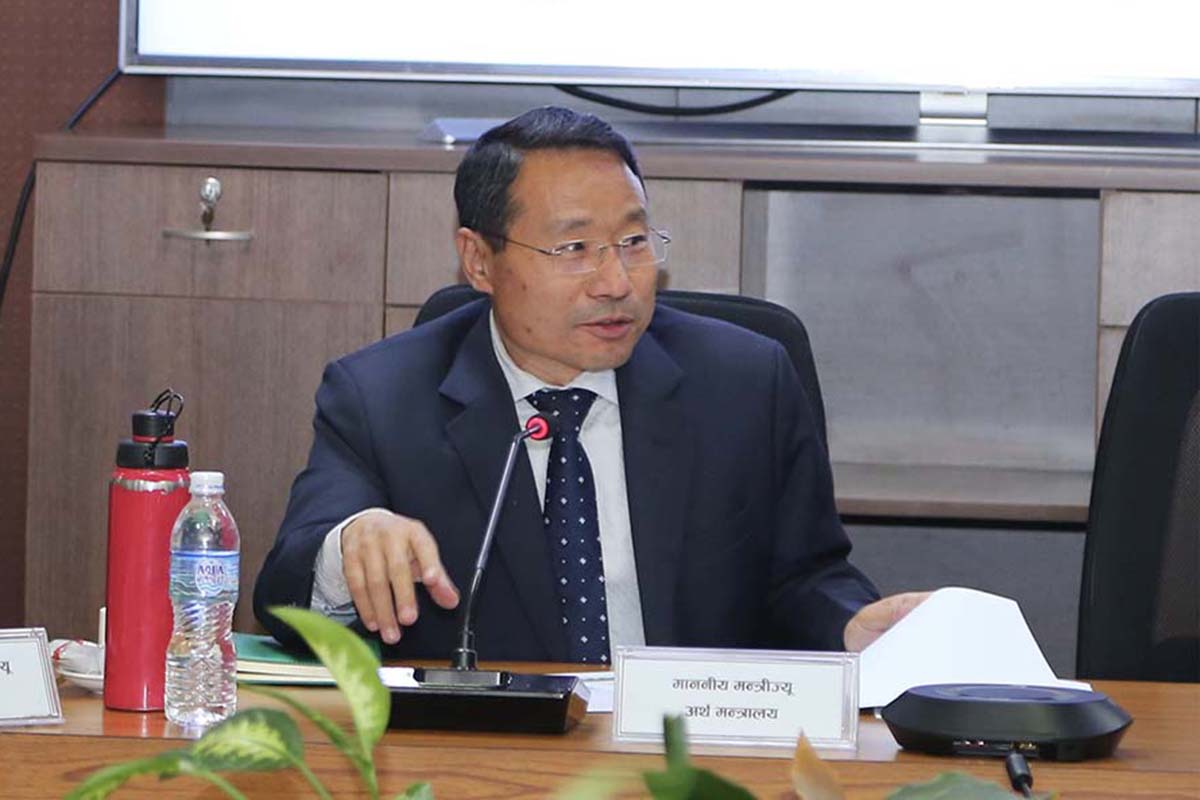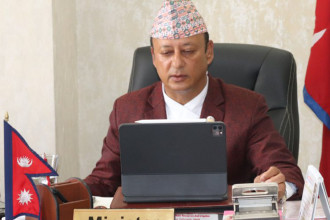
KATHMANDU: Finance Minister Barsha Man Pun has stated that he will work in a way that minimises controversy when adjusting tax rates in the budget for the forthcoming fiscal year.
During an interaction programme held at the Ministry of Finance on Friday, Minister Pun sought advice from young entrepreneurs and experts in the field of Information Technology (IT) regarding budget formulation. He pledged not to yield to pressure or personal interest from anyone when adjusting tax rates. He stated that decisions on changes to revenue rates will be made based on suggestions from stakeholders following consultation. “In the past, reducing, increasing, extending or discounting the tax rate has led to controversy involving the finance minister or the Ministry of Finance,” Minister Pun said.
He clarified that any change in the amount of tax will be justified by providing a logical reason for the increase or decrease. Minister Pun stated that he is preparing the budget with stakeholder participation, having previously discussed and collected suggestions from former finance ministers, governors of Nepal Rastra Bank, finance secretaries, and experts in the fields of infrastructure, health, and education.
Minister Pun informed that discussions with umbrella organisations of the private sector, including the Federation of Nepalese Chambers of Commerce and Industry (FNCCI), Confederation of Nepalese Industries (CNI), Nepal Chamber of Commerce (NCC), and women entrepreneurs, will be held soon. He asserted that the government’s policy is to formulate development plans based on the country’s geography, natural resources, and human resources.
He noted that Nepal has made significant progress in the tourism, energy, and cement industries over the last one and a half decades. He stated that the government now has a policy of prioritising the IT sector, startups, and innovation in the future, targeting the youth.
“A study has indicated the potential for exporting IT products worth Rs 500 billion in the next five years,” he said.
Highlighting that Nepal’s average economic growth in the last three decades is only 4.23%, he suggested that the reasons for this should be collectively identified. He emphasised that Nepal should be able to reap the benefits of the development achieved by neighbouring countries India and China, which have large populations and economies.
Minister Pun opined that youths both within the country and abroad have an interest in the IT sector. He informed that the ordinance introduced by the government prior to the investment summit allows profits earned by investing in Nepal to be taken abroad and vice versa.








